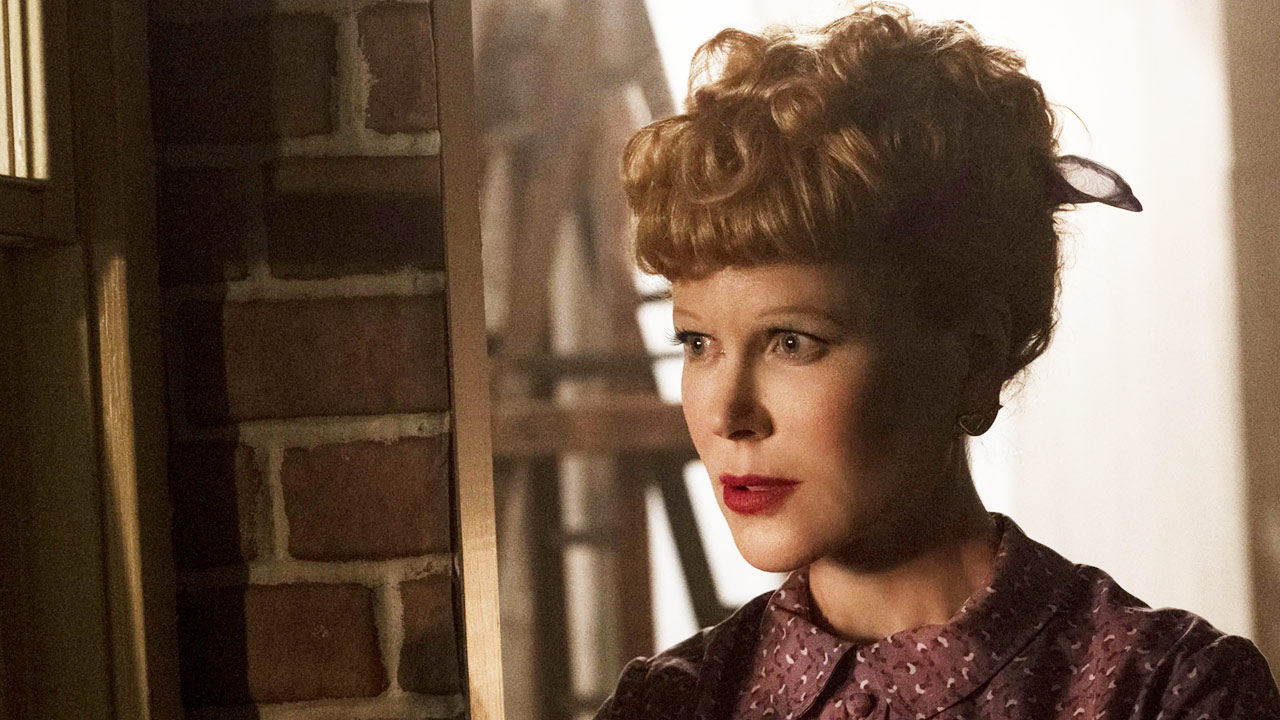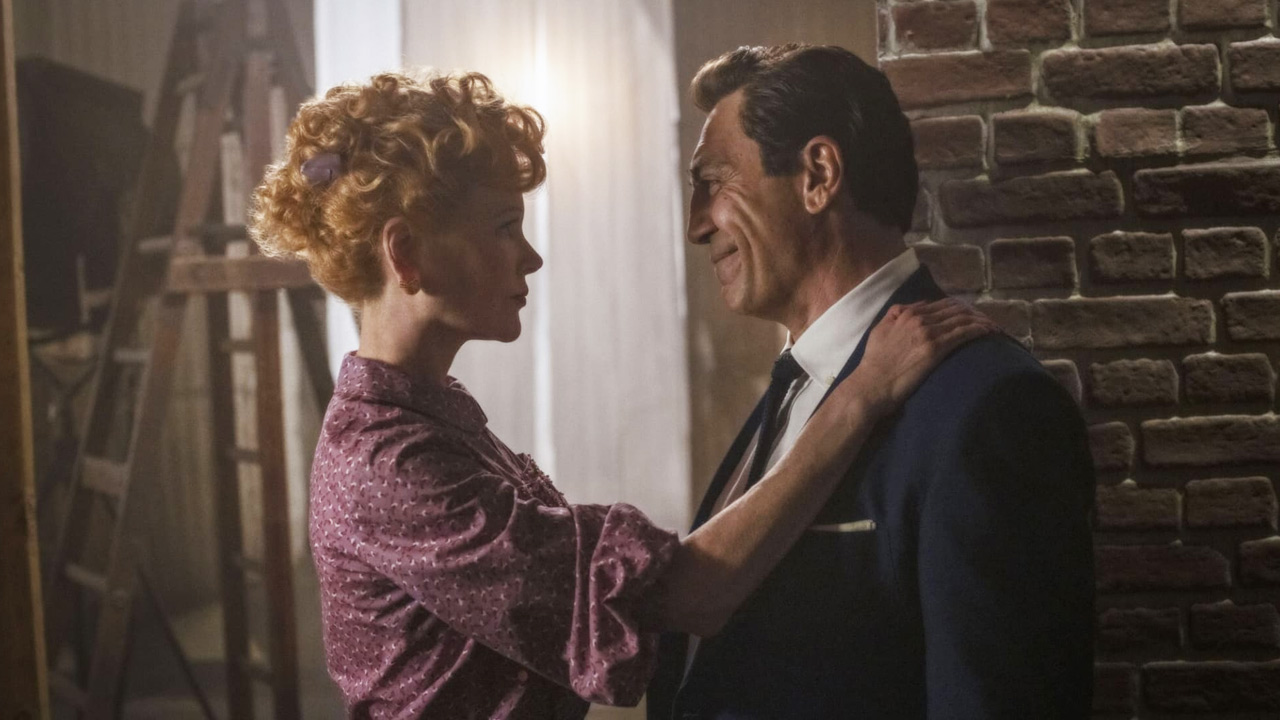Liberal outrage, smart arse dialogue and other Sorkinisms are on fine display in Being the Ricardos

Continuing a great run over the last decade, Aaron Sorkin’s Being the Ricardos is another highly distinctive true-ish story from a powerhouse artist who shows no signs of slowing down, writes Matt Glasby.
Aaron Sorkin is having the most extraordinary run of form. Since 2010 he’s written six films including The Social Network, Moneyball and Molly’s Game, plus TV’s The Newsroom. And after the six-time Oscar-nominated The Trial of the Chicago Seven, which he also directed, he shows no sign of stopping. If he could act, the rest of Hollywood might as well just give up now.
The Sorkin style is so recognisable he’s almost created his own genre: think true-ish stories, smart arse dialogue and liberal outrage served with a sprinkling of sentiment. These tropes are all alive and well in this witty drama about actors Lucille Ball (Nicole Kidman) and Desi Arnaz (Javier Bardem). A married couple both off-screen and on, they’re best known as the Ricardos, the central characters in I Love Lucy, a 1950s TV comedy so popular it regularly pulled in 60 million viewers.
We first meet them at the start of a “compound-fracture of a week”. News anchor Walter Winchell has called Ball a communist—a (mostly) unfounded accusation that threatens to destroy her both professionally and personally. As the TV folk—including exec producer Jess Oppenheimer (Tony Hale, then John Rubenstein)—panic, and the actors—including William Frawley (JK Simmons) and Vivian Vance (Nina Arianda)—rehearse for Friday’s live filming, we spin back to see how Ball and Arnaz met, charting the ups and downs of their marriage and careers.
Mostly, as writer Madelyn Pugh (Alia Shawkat, then Linda Lavin) notes: “They were either tearing each other’s heads off or tearing each other’s clothes off.”
Ball was, by all accounts, quite a piece of work. In Sorkin’s hands, she’s endlessly disarming, throwing out barbs then backtracking to keep people on their toes.
“I was hazing you a little,” she tells a new director. “It’s just my way of saying I have no confidence in you at all.”
Later she tells Vivian off for trying to lose weight: “Most American women look like you not me,” she says. “They want to see themselves on TV.”

With great costumes and even greater lines (when asked if she’s joking, she replies: “I’m Lucille Ball, when I’m being funny you’ll know it”) Kidman is excellent. The film works hard to tease out the real person behind the legend. Often she’s not trying to be a bitch, but rather “pressing down hard on each beat” of the scripts she’s given. When she has a good idea, we see her playing it out on-screen, in black and white—a neat way to dramatise her inner life.
Happy to be second fiddle—unlike the Cuban charmer/careerist Arnaz—Bardem is almost as impressive. “Why did you come to Hollywood?” he asks Ball on their first date. “I got kicked out of acting school for not being good enough,” she says. “How about you?” He doesn’t miss a beat, responding: “The Bolsheviks burned my house down.”
Between the bitching and backstage dramas, Sorkin has some serious points to make. For all her star power, Ball is a woman in a male-dominated era, and subject to ridiculous double standards—while Arnaz does exactly as he pleases. The suits say they can’t show her pregnant on TV; indeed they can’t even allow that word to be spoken.
Ball first meets Arnaz on the set of a terrible film called Too Many Girls, in which he plays a free-spirited Latin lover and she plays a sex worker who’s recently been assaulted. At RKO, meanwhile, a studio executive tells her that, at 39, her film career is over, even though he saw a new side to her in 1942’s The Big Street. Where was it before? “Buried under some bad movies.”
There’s also a clever intersection between the real and the fake. Actors such as Ronnie Cox play older versions of the secondary characters years later, commenting on the on-screen events as if for a retrospective documentary. Although the climactic scenes edge towards cheesiness, Sorkin’s got some surprises up his sleeve. There may be happy endings on TV, but real-life is rather thornier.
In the film Ball warns her colleagues not to make the audience feel stupid because they won’t forgive it, though Sorkin himself has a rare talent for doing the opposite. Watching his work makes you feel cleverer, and you have to love him for that.



















